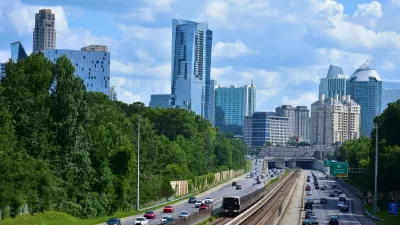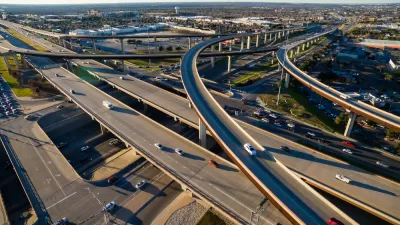One of the most significant pieces of legislation for transportation was last month's job bill that contained essential transportation provisions, including extension of the transportation act, $19.5 Billion to HTF, $4.6 billion to Buy America Bonds.
While the Senate approved the bill with a somewhat bipartisan vote of 68-29 on March 17, the earlier vote was 61-30 to close debate.
On March 18, President Obama signed the"HIRE Act" (HR 2847) containing several transportation provisions including:
> "Extension of the surface transportation authorization until the end of this calendar year. The previous extension of the 2005 surface transportation authorization law known as "SAFETEA-LU" was scheduled to expire March 28.
> Deposit $19.5 billion into the Highway Trust Fund to reimburse the trust fund for interest payments not received since 1998. This will ensure the trust fund's solvency into next year.
> Provide $4.6 billion in additional federal subsidies for Build America Bonds, a program created by the American Recovery and Reinvestment Act of 2009. The bonds allow states and municipalities to finance infrastructure projects with an interest subsidy from the federal government.
> Allow the Highway Trust Fund in the future to collect interest on its deposits, as all other federal trust funds are authorized to do."
FULL STORY: President Signs Bill Providing 9-Month Extension, $19.5 Billion for Highway Trust Fund

Manufactured Crisis: Losing the Nation’s Largest Source of Unsubsidized Affordable Housing
Manufactured housing communities have long been an affordable housing option for millions of people living in the U.S., but that affordability is disappearing rapidly. How did we get here?

Americans May Be Stuck — But Why?
Americans are moving a lot less than they once did, and that is a problem. While Yoni Applebaum, in his highly-publicized article Stuck, gets the reasons badly wrong, it's still important to ask: why are we moving so much less than before?

Research Shows More Roads = More Driving
A national study shows, once again, that increasing road supply induces additional vehicle travel, particularly over the long run.

Judge Halts Enforcement of Anti-Homeless Laws in Grants Pass
The Oregon city will be barred from enforcing two ordinances that prosecute unhoused residents until it increases capacity and accessibility at designated camping sites.

Advancing Sustainability in Los Angeles County Schools
The Los Angeles County Office of Education’s Green Schools Symposium brings together educators, students, and experts to advance sustainability in schools through innovative design, climate resilience strategies, and collaborative learning.

Using Old Oil and Gas Wells for Green Energy Storage
Penn State researchers have found that repurposing abandoned oil and gas wells for geothermal-assisted compressed-air energy storage can boost efficiency, reduce environmental risks, and support clean energy and job transitions.
Urban Design for Planners 1: Software Tools
This six-course series explores essential urban design concepts using open source software and equips planners with the tools they need to participate fully in the urban design process.
Planning for Universal Design
Learn the tools for implementing Universal Design in planning regulations.
City of Moreno Valley
Institute for Housing and Urban Development Studies (IHS)
City of Grandview
Harvard GSD Executive Education
NYU Wagner Graduate School of Public Service
City of Cambridge, Maryland
Newport County Development Council: Connect Greater Newport





























